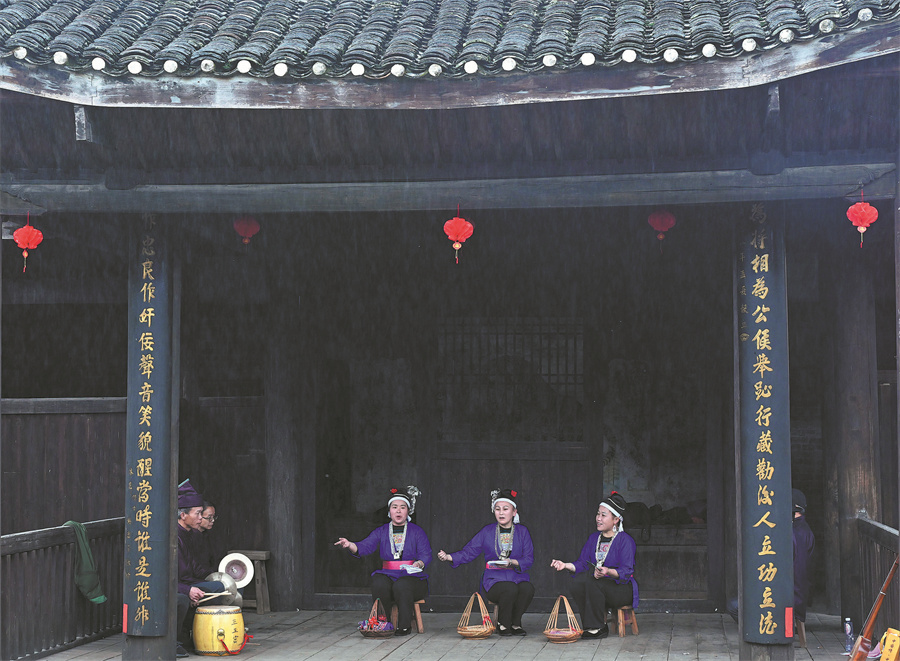Dong farmers sow love of opera tradition
Performances depict richness of village life and bring communities together


In Sanjiang Dong autonomous county, Liuzhou, Guangxi Zhuang autonomous region, a group of village farmer-performers maintain a centuries-old tradition — staging vibrant Dong Opera performances.
With an average age of more than 50, the artists travel from village to village, performing in rice paddies, traditional houses and lush forests.
Their performances, blending song, dialogue and storytelling, have become a bridge connecting communities and preserving the culture of the Dong ethnic group.
On a sunny afternoon, after finishing farm work, Wu Dengxian, 59, leads the Heli village's Dong Opera troupe in a performance at the village's Sanwang Palace Theater.
The play they perform is not an ordinary drama — it is based on local village folklore, transformed into melodic verses of the Dong ethnic group.
The performers, dressed in traditional costumes, sing passionately, their voices echoing through the ancient wooden theater. Just hours earlier, they were working in the fields, wearing straw raincoats; now, they are artists, bringing village life to the stage.
Dating back about 200 years to the Qing Dynasty (1644-1911), Dong Opera was listed among the first batch of State-level intangible cultural heritages in 2006. In Sanjiang, it has thrived for generations, deeply rooted in local lives.
Wu, a city-level inheritor of the art form, learned Dong Opera from his grandfather and father.
Over the years, he has not only mastered the craft but also written scripts, adapting folk tales, historical legends and even local regulations into operas.
According to Wu, they don't only perform stories of heroes, love and countryside life, but also use Dong Opera to teach customs, traditions and morality.
Nearly 20 inheritors like Wu keep the tradition alive, balancing farming and performing. In their spare time, they collect and document scripts.
More than 500 plays are still performed in Sanjiang, with 28 volumes of written records preserved.
To ensure that the art form endures, Dong Opera is entering schools, attracting young enthusiasts.
Wu hopes more youths will join his troupe and embrace the lifestyle of farming in busy seasons, while singing in their leisure time.
"Dong Opera is our treasure," he says. "As long as we keep singing, it will never fade."
























